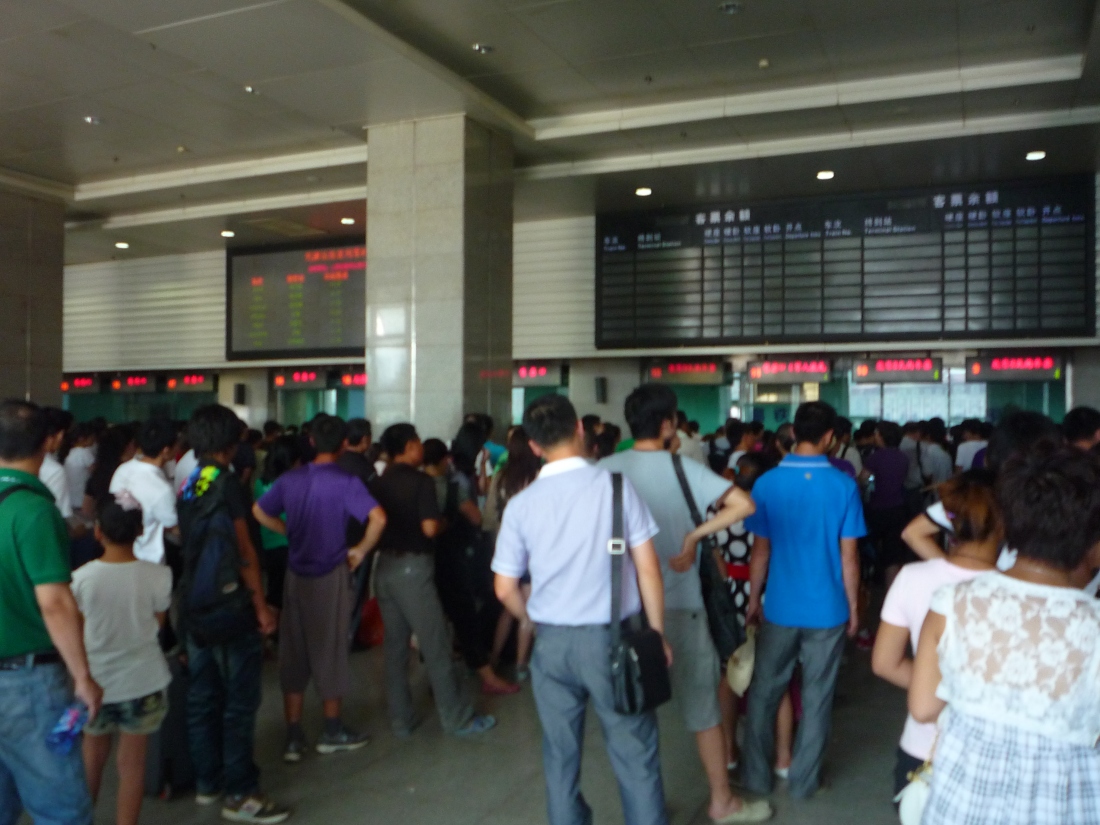Trains are one of the key symbols representing the success of China. Over about a decade, China has built an extensive high-speed train network connecting all major cities in the country.
From abroad, we mostly think of long-distance lines – Beijing Shanghai, especially, or Wuhan-Guangzhou. But more important, I think, are those trains connecting cities which are close to each other. At 320km per hour, it now takes about thirty minutes to go from Beijing to Tianjin; 30 minutes from Shanghai to Suzhou, and about an hour from Shanghai to Hangzhou. These ‘local’ high-speed trains are bringing together existing multi-million metropolises, creating integrated, polycentric mega-cities of 30 to 50 million people.
The technological success is impressive. Sure, there was a major accident on the Beijing to Shanghai train recently – leading to the slogan ‘China should slow down’, and a decision from the government to reduce the speed of its fast trains. Still, overall, once you get on a Chinese train, it’s efficient, comfortable, and quick.
But did you ever try to buy a train ticket in China?
This is one of the most absurd systems imaginable. Tickets are on sale only four, or six, or eight, or ten days before the train departs – no one is really sure how early you can get them, and it seems to ‘depend’. Tickets can only be bought at the train station (and certain places only locals would know about, like certain supermarkets, or specific travel agencies – but only some of their outlets, not all). Everyone’s constantly shopping online, but of course, you cannot book a train ticket over the internet.
More absurd, still, tickets can only be bought from the station that the train leaves from. So if you’re planning a trip from, say, Tianjin to Shanghai, then Shanghai to Hangzhou, you have to queue up in Shanghai to get your Hangzhou ticket. Hoping there is a seat left – with 1.2 billion people around, it’s not always a winning bet.
Add to that the – recent – regulation saying that you need an ID card to purchase a ticket – which means, as a foreigner, you cannot use the machines at the station (they can’t read your passport), but you have to line up at the counter – and it’s long, and everyone’s pushing, and you’re not even sure you’re waiting at the right counter. So getting from Beijing to Tianjin is about 30 minutes in a queue, 30 to 45 minutes waiting for your train to leave after you got your ticket (if you’re lucky to get a seat on the first one), then 30 minutes on the train. And I’m not counting the taxi, bus or metro ride to the station.

My Chinese friends are all weirdly apathetic about it – it’s part of how things are. I was reading in Rampini’s books – and elsewhere – about the compared advantages of China and India – and how India’s doing better in services. I haven’t taken a train in India but it wouldn’t be very difficult to think of a better system. Yet China’s building more and more high-speed lines, bringing cities and provinces closer and closer together.
Meanwhile, people stand in a crowded station, lining up, hoping there will be room for them on their country’s major symbols of success.





